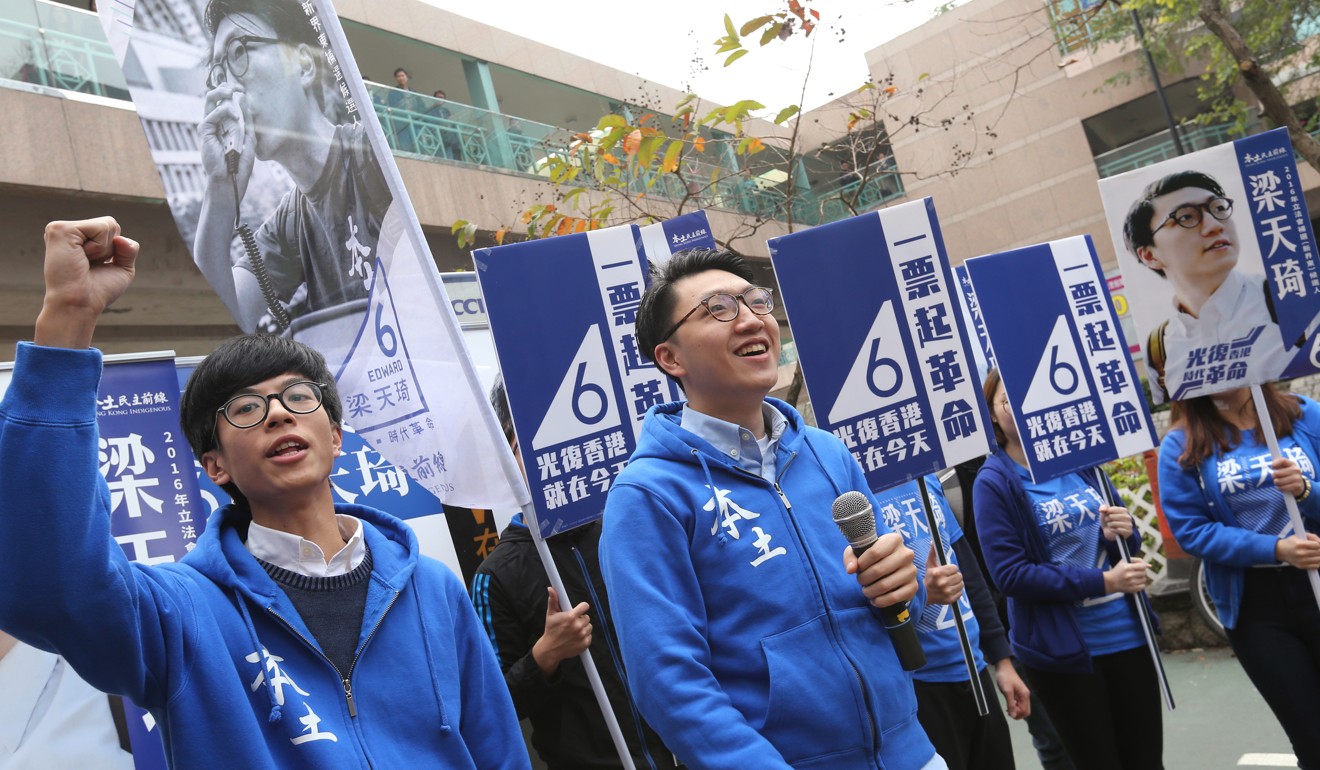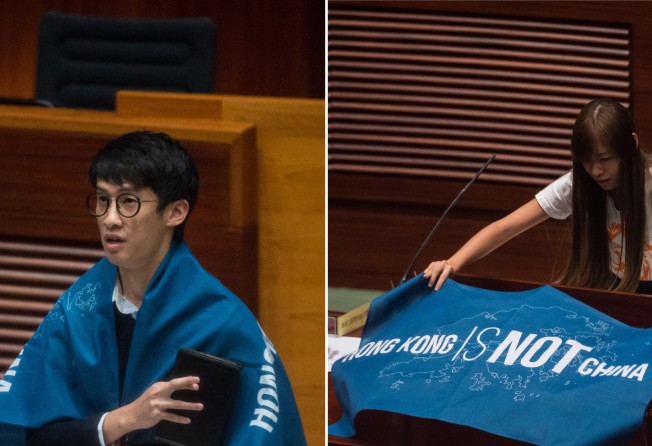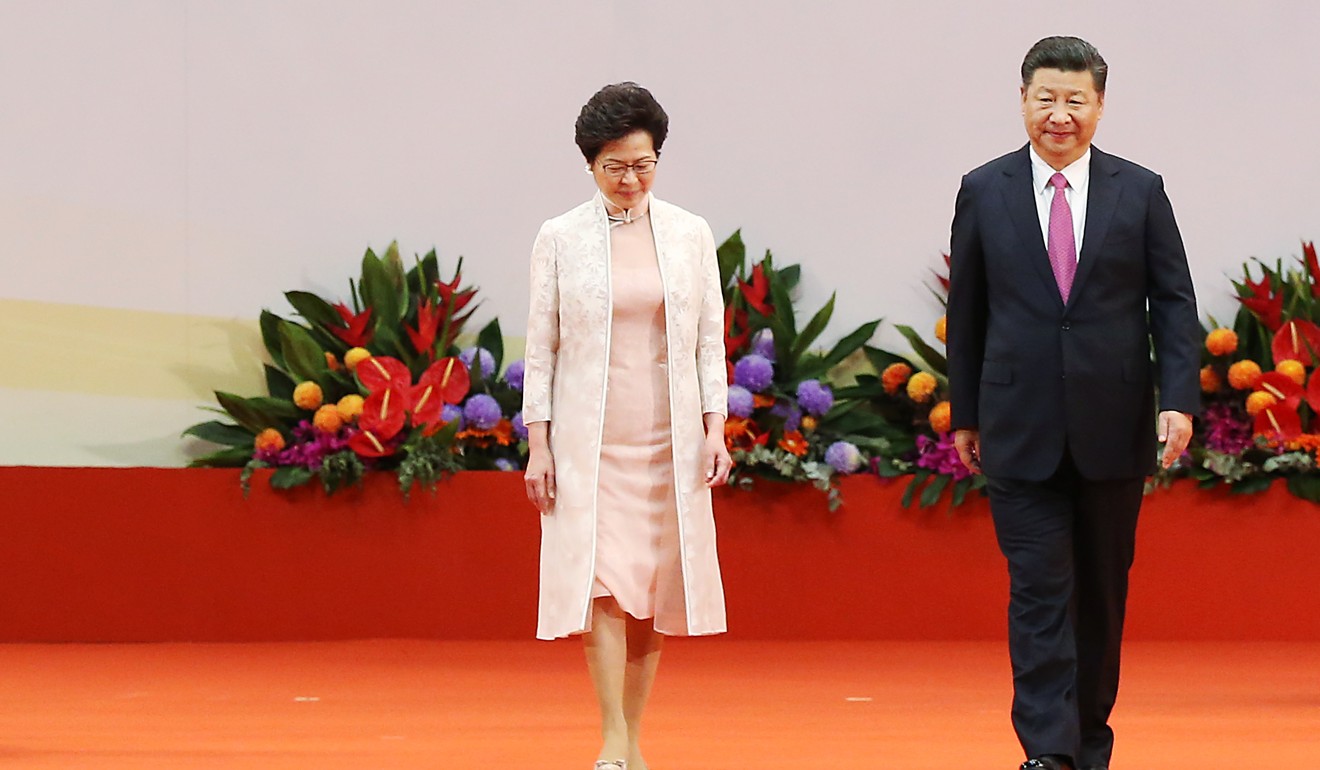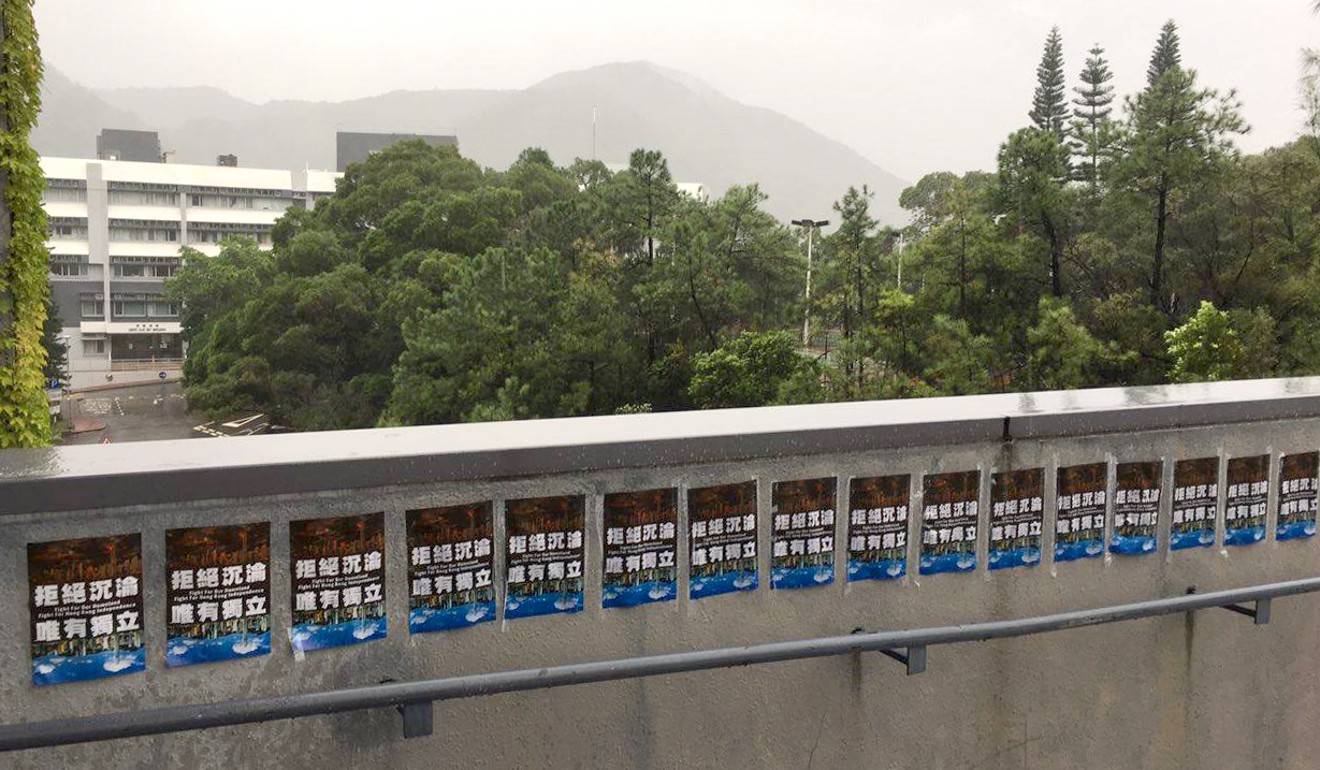
Why all the fuss about Hong Kong independence?
Explain This takes a closer look at topical issues or news of the moment and presents it in easy-to-understand summaries

Banners and posters advocating Hong Kong independence were put up initially at Chinese University and then five other institutions, reigniting debate about whether the city’s separation from China can be discussed as an academic topic at places of learning. “Hong Kong independence” is not only an academic issue. It has in recent years evolved into a radical localist movement that has caught the attention as well as fury of local officials and the top echelon of the Chinese state leadership.
How did it all start?
It was not until 2011 that the city’s independence became a hot topic, when former Lingnan University associate professor Dr Horace Chin Wan-kan published his iconic book Hong Kong as a City State and inspired localist groups in the city.
In September 2014, University of Hong Kong student magazine Undergrad took a step further by publishing a manifesto titled Hong Kong Nationalism. It became the target of criticism of then chief executive Leung Chun-ying in his 2015 policy address.
Who are the key activists and what have they done?
Hong Kong Indigenous leaders Edward Leung Tin-kei and Ray Wong Toi-yeung were regarded by young activists as iconic faces of the pro-independence movement. The pair face charges of rioting and incitement to riot over their alleged role in the Mong Kok unrest last year.
Pro-independence activists Yau Wai-ching and Sixtus Baggio Leung Chun-hang of the Youngspiration group were stripped of their Legislative Council seats for pledging allegiance to the “Hong Kong nation” and insulting China during their swearing-in last year.
Hong Kong National Party convenor Andy Chan Ho-tin was another high-profile advocate of the city’s separation from China.

What are the stances of the central and local government?
On July 1, President Xi Jinping warned Hong Kong not to cross the “red line” of undermining Chinese sovereignty. “Any attempt to endanger China’s sovereignty and security, ... or use Hong Kong to carry out infiltration and sabotage activities against the mainland is an act that crosses the red line,”he said.
Chief Executive Carrie Lam Cheng Yuet-ngor has also vowed to take firm action against any move to undermine the country’s security and sovereignty. Before taking office, Lam said: “I believe the absolute majority of Hongkongers have never felt that Hong Kong independence is a viable option”.

Is it illegal to advocate independence for Hong Kong?
Under the Crimes Ordinance, anyone who utters, does or prepares to do anything with a seditious intention shall be guilty of an offence and liable for a fine of HK$5,000 and two years in jail.
University of Hong Kong principal law lecturer Eric Cheung Tat-ming said those provisions were “outdated”, and could contravene other legislation, including the Basic Law and the Hong Kong Bill of Rights Ordinance, that protect freedoms.
But Executive Councillor Ronny Tong Ka-wah, a former chairman of the Bar Association, disagreed.
He said under Article 19 of the International Covenant on Civil and Political Rights, the exercise of the right to freedom of expression was subject to certain restrictions, such as “for the protection of national security or of public order”.

Should the independence issue be discussed in schools and universities?
The Education Bureau warned that teachers could be fired for advocating independence in secondary schools.
Under the previous administration, Chief Executive Leung Chun-ying and education minister Eddie Ng Hak-kim repeatedly warned that promoting separatism violated the Basic Law and should not be allowed in schools.
The officials’ stance on independence discussions in universities has been less clear, but University of Hong Kong vice-chancellor Professor Peter Mathieson had said that while institutional autonomy and academic freedom were HKU’s cornerstones, the debate about Hong Kong independence “would not be in the best interests of the university.”